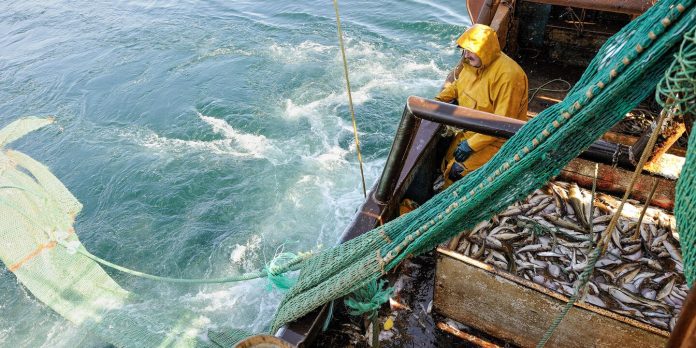In 2023, Morocco’s fishing industry achieved record-breaking export revenues of 31 billion dirhams (MMDH), with an output of 847,000 tons of seafood products. This sector now represents 7% of Morocco’s total exports and 39% of agro-food exports, underscoring its strategic importance to the national economy. Behind these figures lies a structured and dynamic industry, constantly adapting to meet both local and global challenges.
Morocco’s seafood sector is powered by a robust network of 518 processing units, specializing in activities such as freezing, canning, semi-preservation, and value-added products. These facilities not only enhance food security but also play a crucial role in job creation and Morocco’s international reputation. In 2023, the industry provided over 126,000 direct jobs, consolidating its position as one of the country’s key employers. However, these achievements unfold within a global context marked by climate change, which calls for sustainable and forward-thinking resource management.
Morocco’s leadership in the fisheries sector is closely tied to the Halieutis Strategy, introduced in 2009 by King Mohammed VI. This visionary plan focuses on three central objectives: the sustainable management of resources, improving the competitiveness of Moroccan seafood products, and upgrading infrastructure to boost overall efficiency. By 2023, investments in the Halieutis Strategy had exceeded 930 million dirhams, allowing Morocco to strengthen its regional and international standing while empowering local capacities.
Aquaculture has emerged as a promising avenue for the future of Morocco’s fisheries. This approach provides a sustainable solution by reducing pressure on wild stocks while ensuring a consistent supply of quality products for processing. At the same time, aquaculture helps diversify income streams for local communities, contributing to the resilience of the industry in the face of growing environmental and economic challenges.
To meet these challenges, Morocco is investing in modernizing its fisheries sector. The focus is on strengthening infrastructure, improving processing techniques, and promoting public-private partnerships to foster innovation and growth. These efforts align with the country’s broader vision of leveraging the blue economy as a strategic lever for sustainable development and long-term economic growth.
More than just an economic driver, the fishing industry embodies resilience and innovation. It plays a pivotal role in ensuring Morocco’s food security while preserving marine ecosystems. With visionary policies and committed stakeholders, the sector continues to chart an upward path, reaffirming its position as a cornerstone of the Moroccan economy.





